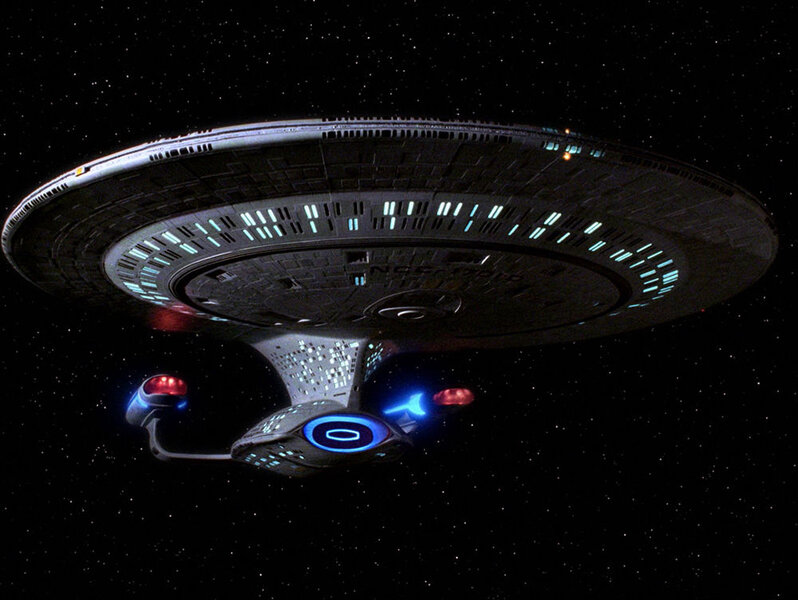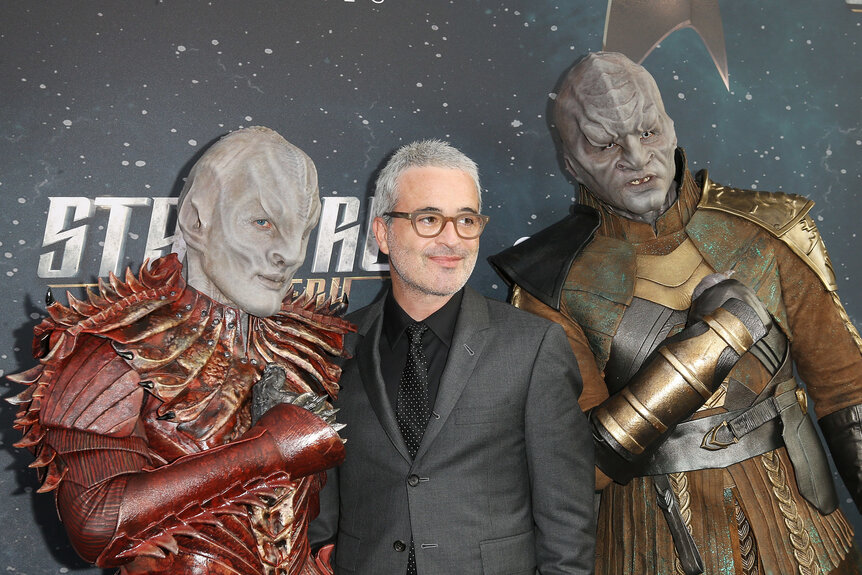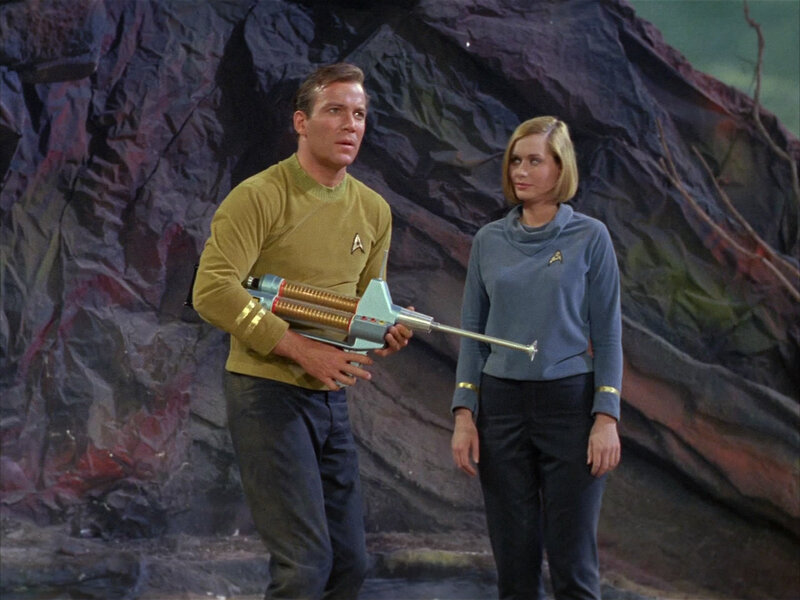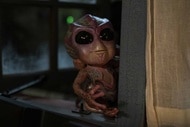Create a free profile to get unlimited access to exclusive videos, sweepstakes, and more!
3 ways Star Trek history always repeats itself
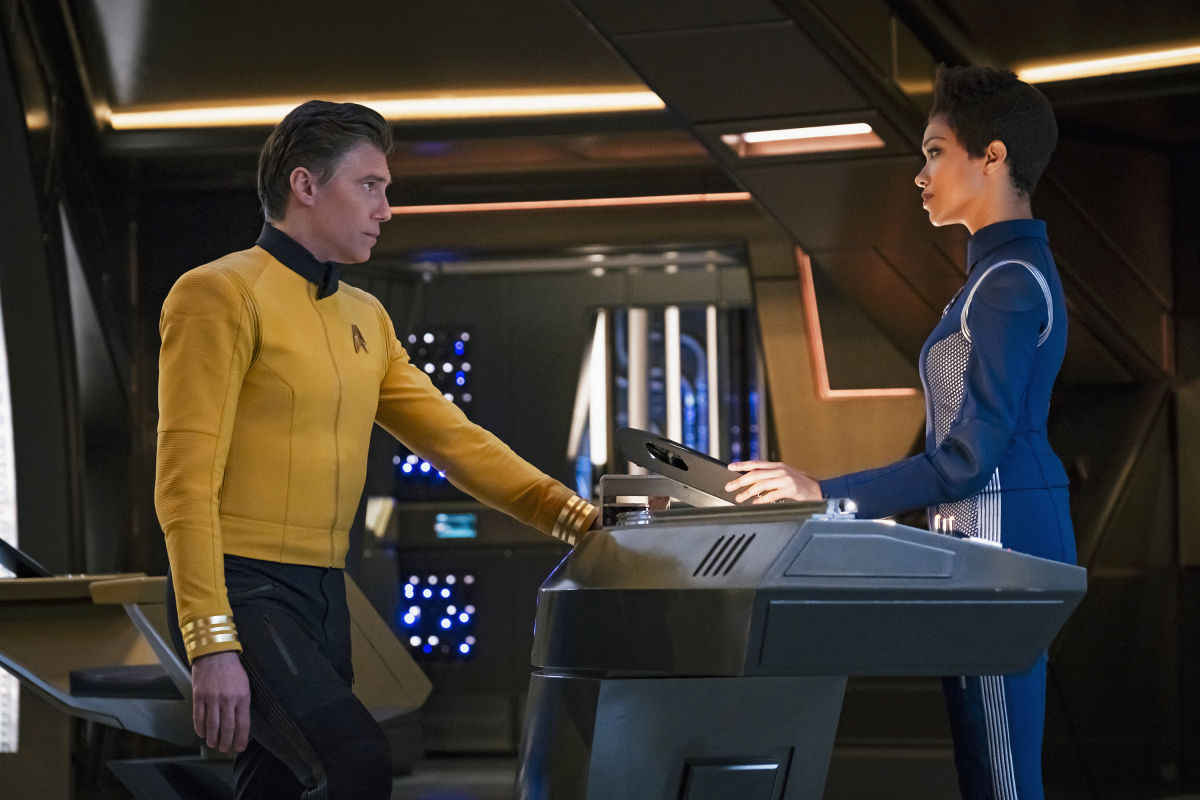
In the next few years, the Star Trek franchise will expand far more than it has in perhaps its entire history. In addition to Star Trek: Discovery Season 3, the new Picard series will debut later in 2019, followed by Lower Decks, the Section 31 series, and another animated kids' show on Nickelodeon. Some naysayers or pundits might claim all of this won't work, or that the various philosophical aspects of these different shows can't be reconciled with the existing canon, and so on.
But even before the recent supernova of new Star Trek starting in 2017 with Discovery, Star Trek's journey on the small screen has been a difficult one. In fact, some of the difficulties — perceived and real — that Discovery has faced have all happened in Trek history before. As proof, here are three ways history has always repeated itself when it comes to Star Trek on television.
Unconventional distribution
Even though Discovery has been on for two seasons now, there are some vocal elements of fandom who are furious over the CBS All Access subscription fee required to watch the series in America. (Discovery is on Netflix globally, which, of course, also requires a subscription fee.) The strange thing about this is that unconventional, or at least non-traditional distribution of Star Trek has always been part of its story.
The original Star Trek originally aired on a traditional network, NBC, but because of poor ratings and a bad time slot, it was canceled after three seasons. Star Trek was popular in the '60s during its initial run, but it wasn't until it was syndicated in the '70s that it became the cult hit we think of today. The point? In the '70s, syndicated TV was a funky way for a show to be distributed. Which is why, when Trek creator Gene Roddenberry relaunched Trek in 1987 with Star Trek: The Next Generation, he decided he wanted the show to be distributed through syndicated channels. In other words, he trusted the audience would find Star Trek if they wanted to find it, which isn't too different from CBS All Access today.
Similarly, in 1995, Star Trek: Voyager actually launched a new TV network — what was then called UPN — like totally '90s equivalent of Discovery anchoring CBS All Access today. By the time Star Trek: Enterprise aired in 2001, UPN had morphed into The CW, which is where that series aired until 2005.
Changing showrunners
If you’ve been following the development of Discovery from the beginning, then you know that the creative team behind the series has changed. A lot.
Initially created by beloved writer and producer Bryan Fuller, Star Trek: Discovery lost Fuller as its showrunner well before the series as we know it took shape. Since then, Alex Kurtzman has served as showrunner, though, for all of Season 1, the de facto showrunners were Gretchen J. Berg and Aaron Harberts. During Season 2 production, both Berg and Harberts were fired by CBS, which left Kurtzman as the showrunner along with Heather Kadin. For Season 3, Kurtzman and Michelle Paradise will be Discovery's showrunners.
DISCO haters might claim this creative changeover is the very reason why the newest Trek seems uneven at times. But this kind of thing happens on literally every version of Star Trek and has since the original series.
After Gene L. Coon left after Season 2, original series creator Gene Roddenberry also left in the third season of the original series and was notoriously replaced by Fred Freiberger in 1968. The early seasons of The Next Generation also saw a lot of writer and producer changeover; Robert Lewin left before Season 2 started and was replaced by Maurice Hurley, who was eventually replaced by Michael Piller for Season 3.
Relatively speaking, Star Trek: Deep Space Nine had less turnover with producers than other Treks, but Ira Steven Behr's promotion in Season 3 certainly changed the direction of the show forever. Voyager and Enterprise also saw a ton of behind-the-scenes changes in the late '90s, notably the departure of Voyager co-creator Jeri Taylor prior to Season 4. With Enterprise, the showrunner for Season 4 was Manny Cotto, who brought a totally fresh vision to the show that even series co-creator Brannon Braga has retroactively complimented.
The point? No matter which Star Trek TV series is your favorite, there has been a revolving door of writers and producers on every single one of them.
Old guard backlash
On Twitter today, you can find plenty of old school fans saying "Discovery is not really Star Trek." Not only is this clearly insane, but this is also an old, and embarrassing, argument. And that's because nearly every single new iteration of Star Trek has faced a backlash from existing elements in fandom. It even happened before Star Trek fandom existed.
Before there were regular Star Trek conventions, Trekkies created panels and events within existing book-focused science fiction conventions. But the old guard of “SF” fans and authors regarded Star Trek as being not really science fiction. (Part of the difference between the terms 'SF' and 'sci-fi' is that the latter was, originally, mostly pejorative and referred to televised science fiction, including Star Trek.)
After Star Trek had its own fandom, the idea of a new series without Kirk and Spock initially drew ire from the established fanbase. As the documentary Chaos on the Bridge reveals, some Trekkies were furious in 1987 at the mere idea of The Next Generation. This kind of bias happened with nearly every iteration of Trek, including DS9, Voyager, and Enterprise. In 2018, Jonathan Frakes — director of Star Trek: First Contact and the man who played Riker on TNG — pointed out that what the cast and crew of Discovery faced was exactly like the backlash he remembered in 1987. "It's the same thing," Frakes told me last year. "At conventions, you could feel the resistance from the audience about embracing yet another company, or another ship or another crew or another family on Star Trek."
So, when Star Trek celebrates its 100th anniversary in the year 2066, hopefully, someone who is an 80-year-old hardcore fan of Star Trek: Discovery will be able to look back on this article and remember that the tumultuous history of the future may have already happened.
